Employers will have the opportunity to interview candidates and make employment offers on the spot, and employment experts from NCWorks Career Centers will also offer free interview and resume preparation and support.


Employers will have the opportunity to interview candidates and make employment offers on the spot, and employment experts from NCWorks Career Centers will also offer free interview and resume preparation and support.
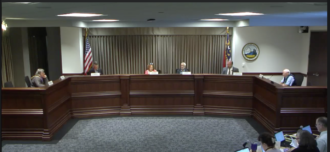
The proposed changes will be considered at a public hearing Monday, April 22, at A-B Tech’s Ferguson Auditorium starting at 5:30 p.m. in which planning board members will vote on whether to approve the recommendations.

The mayor shared her enthusiasm about a potential business improvement district, or BID, in the city’s downtown.
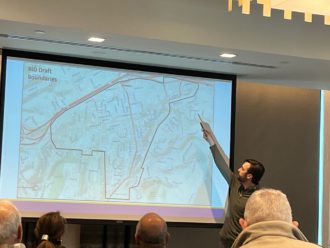
Among those who are skeptical, the point of contention is whether a business improvement district overburdens downtown taxpayers for basic services that should be provided by the City of Asheville and Buncombe County.
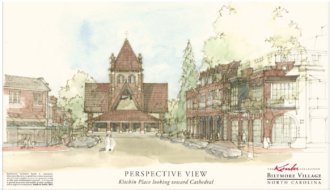
The project also includes 186 under-grade parking spaces, 10 off-street parking spaces, 10 bike racks and the installation of a signalized crosswalk on Hendersonville Road connecting transit routes to the site and to each other at Boston Way.
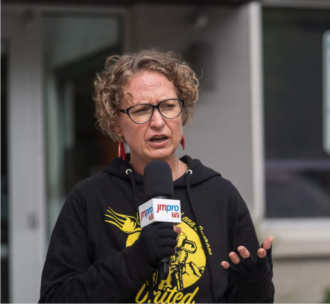
Asheville Food and Beverage United seeks to interrupt “the abusive culture that just keeps being perpetuated,’” explains Jen Hampton, the union’s lead organizer. Her work in the service industry spanned over 30 years, with the last 16 in Asheville.
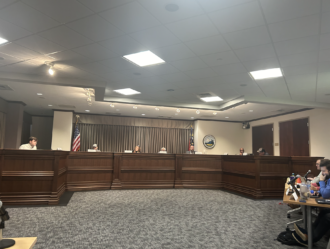
The proposed regulations would ban new whole-house short-term rentals in the unincorporated parts of Buncombe County unless they were located within five commercial zones or in the county’s residential open-use zone. Existing short-term rentals would not be affected by the changes but would require a county permit.

When Kit Cramer arrived at the Asheville Area Chamber of Commerce as president and CEO in 2010, Asheville’s downtown was the subject of much complaining about panhandling, trash and graffiti.
Fourteen years later, Asheville’s downtown is the subject of much complaining about panhandling, trash and graffiti. And the community is once again considering a BID.

According to Bill Sederburg, a Buncombe County resident and member of the WNC Broadband Project community advocacy group, one of the most consequential policies that shaped broadband rollout in the United States was the Telecommunications Act of 1996.
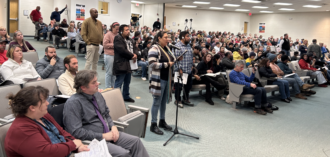
The proposed regulations would ban future short-term rentals, both whole-house and rentals within the owner’s primary residence, in unincorporated parts of Buncombe County unless they were located within commercial zones or in an open-use district, among other changes. Existing short-term rentals would not be impacted by the changes.

Our reporter tries his hand at acting, police work and the grocery biz.

“I think people enjoy seeing the windows decorated,” says Margaret Lancaster, owner of Dog & Pony Show in downtown Asheville. “I think it’s part of what downtown stores should do just to make it special, to make it different.”

Along with an all-age clientele, local toy shop employees and owners say the industry has plenty of other surprises. From unusual peak seasons to unique marketing techniques, shopkeepers say in order to stay in business, they have to keep on top of trends and a whole slew of other considerations.

“How do we bring literature to the spaces where people already are?” asks Jacqui Castle, an author and Lit Local Mini Bookshops.

Project founder Jared Wheatley and Asheville entrepreneurs discuss the “You Are On Cherokee Land” sign initiative.
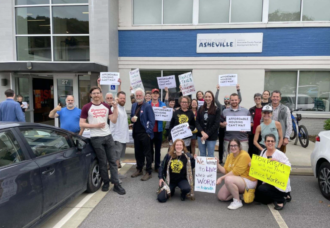
“I did not realize that we were so far ahead of everybody else in North Carolina,” said state Sen. Julie Mayfield, D-Buncombe. “All of these other cities do a great job of marketing themselves, and they don’t spend as much money as we do.”
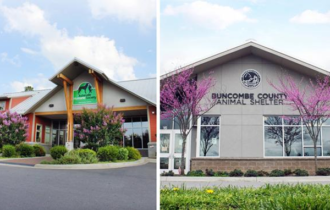
The Asheville Humane Society, in partnership with Buncombe County Animal Shelter, is launching a Community Sheltering Center designed to reunite families with their lost pets and provide support for people who are considering surrendering their pet because of a lack of resources.

Explore Asheville spent more than $88,000 on a golf tournament in July, flying three stars from the MTV reality show “Love & Hip Hop: Atlanta” to Asheville and paying $3,591 for VIP transportation, $3,800 for personal bodyguards and amenities that included a $300 golf lesson at the Omni Grove Park Inn.

“The problem is we see the outcome of hard work but never the many hours and the amount of things that are tried to create a successful business,” says Trina Jackson, owner and operator of Asheville Pro Lash and Salon.

“Last year I moved out of my basement studio in my house into a studio in the River Arts District, a huge leap for me,” says artist Melissa Moss. “It was scary at first and I was out of my element, but now I love being a part of this artist community and interacting with customers.

“I work with toddlers, new parents and schools, so people are often too busy to shower you with compliments,” says Šara Stranovsky, director and owner of Bilingual Birdies Asheville. “Focus on the quality and mission of your work and validation will come.”